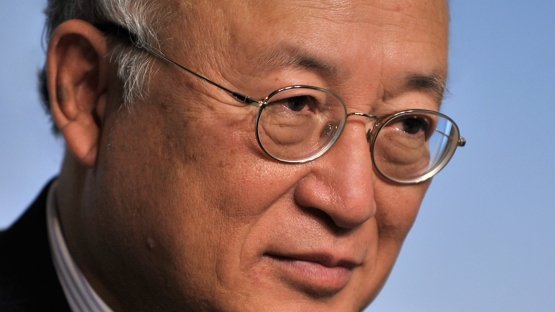Washington — Iran needs to help clarify concerns about possible military dimensions to its nuclear programme but progress so far has been limited, IAEA Director General Yukiya Amano said in Washington today.
Addressing the 2015 Carnegie International Nuclear Policy Conference, Mr Amano said he was committed to working with Iran to restore international confidence in the peaceful nature of its nuclear programme.
"We will do all we can to clarify these issues related to possible military dimensions, as requested by the IAEA Board and the UN Security Council," he said in a keynote address at the two-day event organised by the Carnegie Endowment for International Peace.
"We expect Iran to be as transparent as possible. We will then present an objective, impartial report to our Member States."
The Director General urged Iran to implement the Additional Protocol to its Safeguards Agreement – a step that gives IAEA inspectors greater access to sites and more information about a country's nuclear programme – so that the Agency can provide credible assurance about the absence of undeclared nuclear material and activities.
"The sustained efforts of the IAEA, the P5+1 countries, the UN Security Council – and, of course, Iran itself – are needed," Mr Amano told the gathering of senior officials, experts and media. The P5+1 countries negotiating with Iran include the five permanent members of the Security Council, China, France, the Russian Federation, the United Kingdom and the United States, as well as Germany.
In November 2011, he stated in a report to the IAEA Board of Governors that credible information obtained by the Agency indicated that Iran had carried out activities relevant to the development of a nuclear explosive device. The information also indicated that, before the end of 2003, these activities took place under a structured programme, and that some might still be ongoing. The report identified 12 areas of concern.
Iran and the P5+1 group of countries reached an interim agreement in November 2013 known as the Joint Plan of Action. The IAEA is tasked with verifying that Iran meets its commitments under the accord, under which Iran agreed to curb some of its nuclear activities in exchange for the easing of some economic sanctions. Iran and the six countries are now negotiating a comprehensive agreement.
IAEA inspectors are continuously present on the ground in Iran and have been able to verify that Iran is meeting its commitments under the Joint Plan of Action, Mr Amano said.
Also in November 2013, Iran and the IAEA agreed on a Framework for Cooperation aimed at resolving all outstanding issues in a step-by-step process.
Mr Amano said the cooperation agreement worked for the first several months to help improve the Agency's understanding of Iran's nuclear programme by giving it access to uranium mines and other locations in Iran. But progress has been "very limited" in clarifying issues with possible military dimensions.
"The IAEA is a technical organisation, not a political one. Our job is to establish the facts, to the best of our ability," he said.
At the annual high-level event, Mr Amano also spoke about the IAEA's important work on the peaceful uses of nuclear technology – one of the three pillars of the Treaty on the Non-Proliferation of Nuclear Weapons, alongside non-proliferation and disarmament.
"We help to make nuclear science and technology available to generate electricity, improve human and animal health, increase food production – and much more," he said.
Following his remarks, foreign affairs commentator Natalie Nougayrède of the UK daily Guardian interviewed Mr Amano in front of the audience at Carnegie.
During his two-day visit to Washington, Mr Amano is also due to meet senior U.S. administration officials.
We expect Iran to be as transparent as possible. We will then present an objective, impartial report to our Member States.


